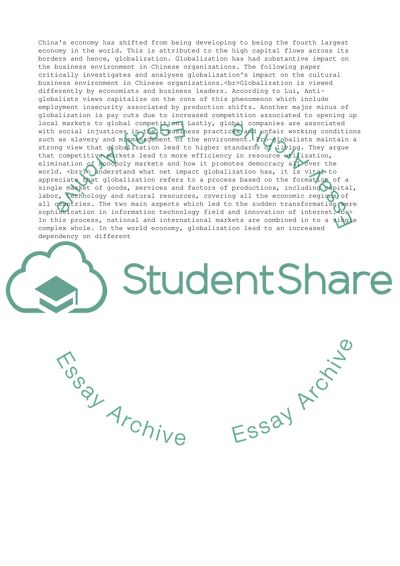Cite this document
(“Impact of globalization on the cultural environment of business China Essay”, n.d.)
Retrieved from https://studentshare.org/business/1393364-the-global-context-of-modern-business
Retrieved from https://studentshare.org/business/1393364-the-global-context-of-modern-business
(Impact of Globalization on the Cultural Environment of Business China Essay)
https://studentshare.org/business/1393364-the-global-context-of-modern-business.
https://studentshare.org/business/1393364-the-global-context-of-modern-business.
“Impact of Globalization on the Cultural Environment of Business China Essay”, n.d. https://studentshare.org/business/1393364-the-global-context-of-modern-business.


